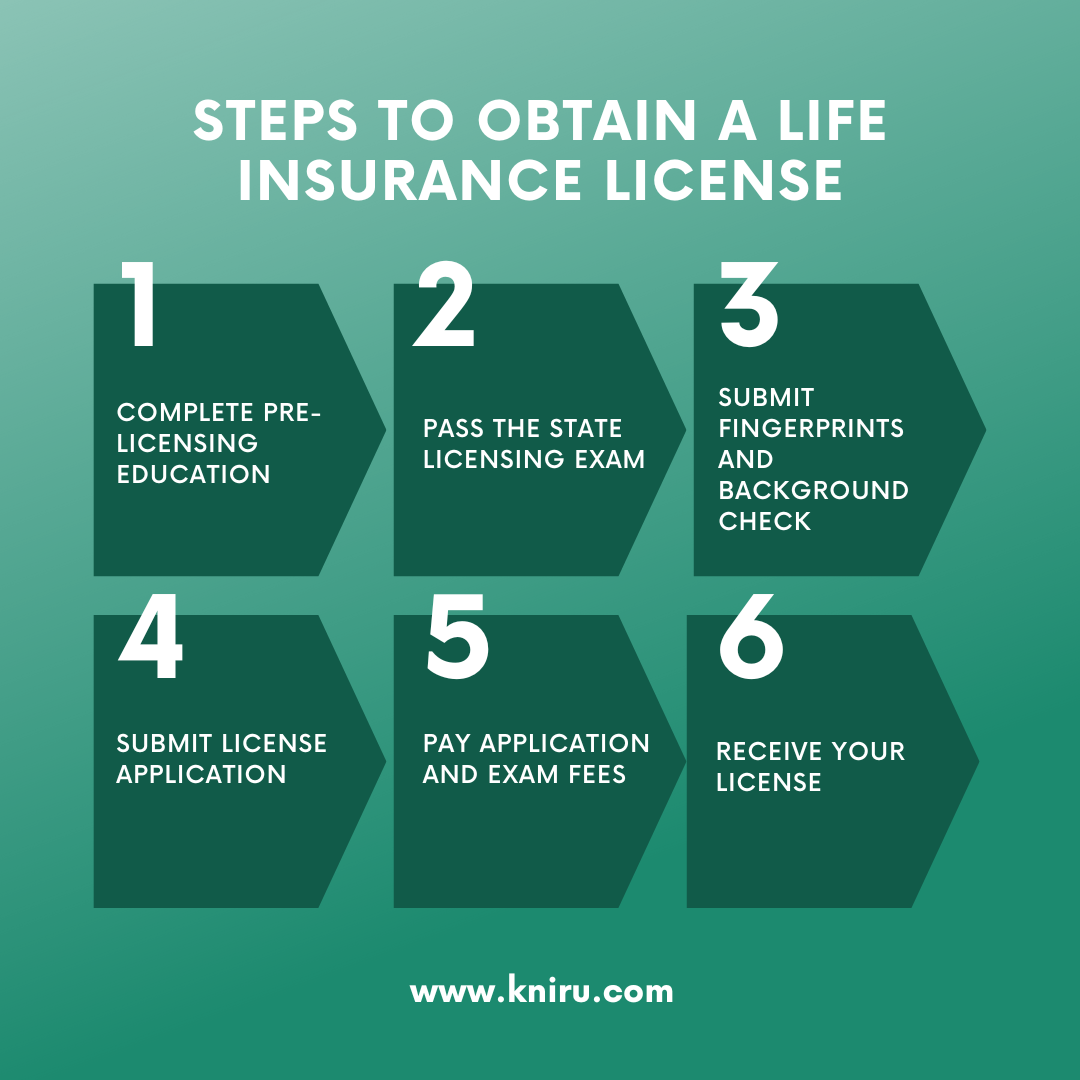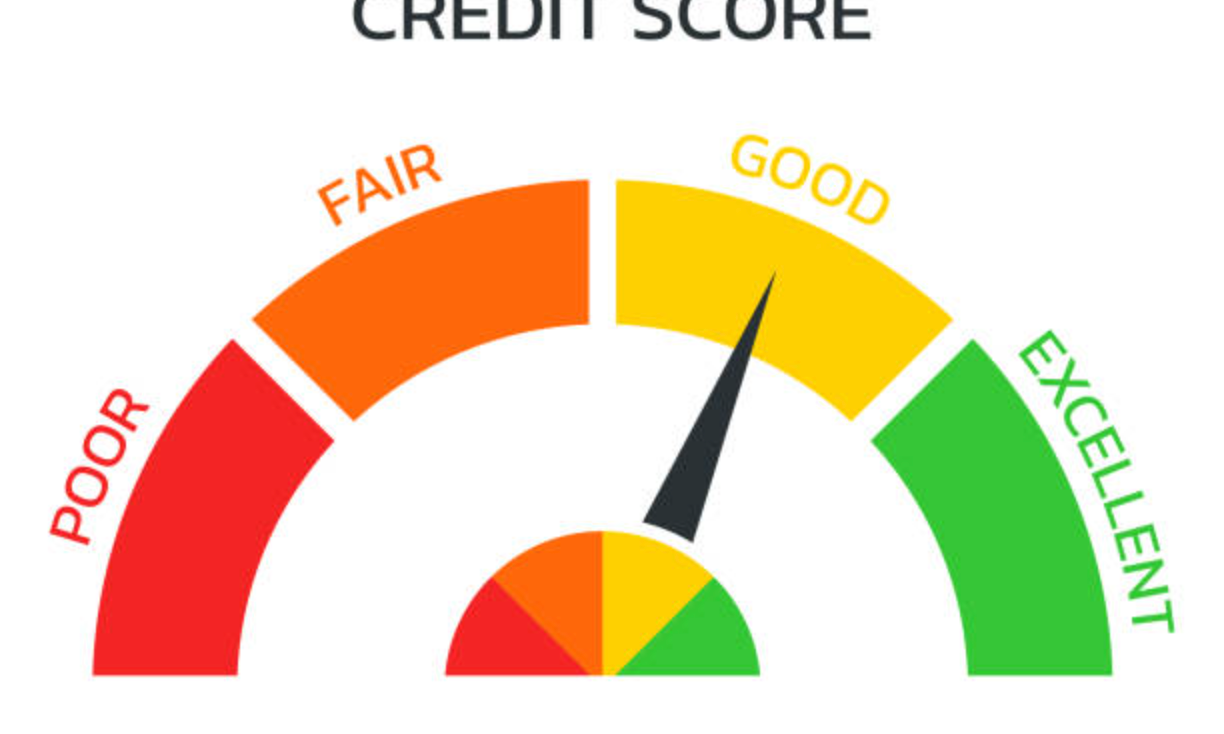How to Get a Life Insurance License: A Complete Guide
Obtaining a life insurance license is essential for professionals entering the insurance industry. This guide covers the importance of the license, steps to obtain it, educational requirements, application process, and exam preparation tips. Learn about the time frame, continuing education, and resources to help you succeed in becoming a licensed life insurance agent.
Abhinil Kumar
Author

Getting a life insurance license is a crucial step for professionals looking to enter the insurance industry. This license not only allows individuals to legally sell life insurance policies but also equips them with the knowledge and skills necessary to assist clients in making important financial decisions. In this guide, we will walk you through the process of obtaining a life insurance license, the importance of this license, the educational requirements, the application process, and tips for passing the insurance exams.
Life insurance License and Agent
A life insurance agent earns income through a combination of initial commissions and renewal commissions.
When a life insurance policy is sold, the agent typically receives an initial commission based on a percentage of the premium paid by the policyholder. This initial commission can range anywhere from 50% to 100% of the first year’s premium. The exact percentage depends on the insurance company and the type of policy being sold.
In addition to the initial commission, a life insurance agent also earns renewal commissions on policies that are still in force. These renewal commissions are typically a smaller percentage of the premium, ranging from 1% to 10% per year. The agent continues to earn renewal commissions for the duration of the policy, as long as the policy remains active and premiums are paid.
Time Frame
- Pre-Licensing Education:
- Course Duration: Typically 20 to 40 hours of instruction. Many people complete this in about 2 to 4 weeks if they study part-time, or 1 to 2 weeks if they study full-time.
- Completion Time: Varies based on personal pace and the course format (online, in-person, or hybrid).
- Exam Preparation:
- Study Time: Allow 1 to 2 weeks for focused study. This includes reviewing course material, taking practice exams, and ensuring you’re comfortable with the content.
- Scheduling the Exam: You can usually schedule the exam within a week of deciding to take it, though availability may vary.
- Taking the Exam:
- Exam Duration: The exam typically lasts 1 to 2 hours.
- Result Notification: Results are often available immediately or within a few days.
- Application Process:
- Submit Application: After passing the exam, submit your application to the state’s Department of Insurance. This process can take a few hours to a few days, depending on how quickly you complete the paperwork.
- Background Check: Completing the background check and fingerprinting can take 1 to 2 weeks, depending on the state and any backlogs.
- Application Processing Time: This can take anywhere from a few days to several weeks, depending on the state’s processing times and any additional review steps.
- Receiving Your License:
- Time Frame: Once your application is approved, you should receive your license within a few days to a few weeks.
- Continuing Education (Post-License):
- Ongoing Requirement: Most states require ongoing continuing education every 1 to 2 years. The time commitment varies but generally requires a few hours of coursework.
In total, you can expect the process to take around 1 to 2 months if you move through each step efficiently.
Importance of Obtaining a Life Insurance License
Obtaining a life insurance license is a critical step for professionals looking to enter the insurance industry. It not only allows individuals to legally sell life insurance policies, but it also provides them with the knowledge and skills necessary to assist clients in making important financial decisions. This license serves as a testament to the expertise and credibility of insurance agents and brokers, enabling them to establish trust with potential clients. Moreover, it ensures that professionals are equipped with the necessary understanding of the complex and ever-evolving world of life insurance, enabling them to provide the best possible advice and solutions to individuals and families seeking coverage. In this increasingly competitive market, the importance of obtaining a life insurance license cannot be overstated, as it not only contributes to the professional growth and career advancement of insurance agents but also ensures that clients receive the reliable and trustworthy services they deserve.
- Legal Requirement: It is a legal requirement to sell life insurance policies.
- Credibility and Trust: It demonstrates expertise and credibility, which helps establish trust with potential clients.
- Knowledge and Skills: It ensures that agents are equipped with the necessary understanding of life insurance to provide the best possible advice and solutions to clients.
License Application
In order to determine the required documentation for a license application, one must refer to the Application Requirements chart(https://nipr.com/) and identify the specific submission code numbers listed under the Resident or Non-Resident columns. Resident” refers to someone who lives in the state where they are applying for the license. A “non-resident” typically refers to an individual applying for a license in a state where they do not reside These submission code numbers serve as a reference point for matching the chart’s corresponding numbers.
For example, if a license applicant is a resident, they would look under the Resident column of the Application Requirements chart and search for the submission code numbers applicable to their specific situation. These submission code numbers could represent various documents such as proof of residency, identification, or any other required paperwork.
Once the submission code numbers have been identified, the applicant can refer back to the chart to determine the specific documentation that needs to be submitted for their license application. Each submission code number corresponds to a specific requirement or document, which is listed in detail under the corresponding numbers on the chart.
By carefully matching the submission code numbers with the corresponding numbers on the Application Requirements chart, applicants can easily determine the necessary documentation needed to complete their license application. This systematic approach ensures that all required paperwork is provided, streamlining the application process and avoiding any delays or complications.
Eligibility for Non-US Citizens: Non-US citizens can apply for a life insurance license in many states, provided they meet specific state requirements which may include having a valid Social Security number or an Individual Taxpayer Identification Number (ITIN), and meeting residency or employment criteria in the state of application.
Requirements for Submitting an Application
To submit an application for a life insurance license, you must:
- Complete the Application Form: This form is usually available on your state’s department of insurance regulation website. The form typically asks for your personal information, such as name, address, and Social Security number. Questions regarding your background in terms of legal and financial history may also be included to assess eligibility.
- Provide Documentation:
- Proof of Residency: This could include a state-issued ID or utility bills.
- Identification: Usually, a government-issued ID such as a driver’s license or passport is required.
- Educational Background: Transcripts or certificates proving you have completed the required pre-licensing education.
- Work Experience: Documentation or references that validate your relevant professional experience.
- Pay the Application Fee:
- Fee Range: The fees for applying for a life insurance license vary by state but typically range from $50 to $200.
- Payment Method: You can usually pay these fees online through the official state department of insurance website.
- Link to the State Department of Insurance Website: To find the specific application form, list of required documents, and payment portal for your state, visit the National Association of Insurance Commissioners. This site links each state’s insurance department, where you can access all relevant resources.
Education Requirement
In order to obtain a license, individuals must fulfill certain education requirements, namely completing prelicensing education courses https://content.naic.org/. These courses are designed to provide aspiring license holders with the necessary knowledge and skills to succeed in their chosen field. The specific requirements may vary depending on the profession, but the completion of prelicensing education is mandatory across the board.4
Additionally, applicants must meet certain age requirements. Most of the states have the minimum age requirement is 18 years old. This ensures that individuals are of legal age and maturity to take on the responsibilities and obligations associated with their chosen profession.
Moreover, applicants must pass the applicable examination within a certain timeframe. This time limit is set at two years, giving applicants an ample opportunity to prepare and study for the exam. It also ensures that individuals are able to demonstrate their understanding and competency within a reasonable timeframe.
Once an individual has successfully passed the examination, they are then required to submit a completed license application within two years. This ensures a streamlined process for both the applicant and the licensing authorities, as it establishes a clear timeline for completion.
Pre-requisites for Obtaining a Life Insurance License
- Pre-Licensing Education:
- Hours Required: Complete between 20 to 40 hours of pre-licensing education. The exact number depends on your state’s requirements.
- Content Covered: These courses cover essential topics such as life insurance principles, policy types, and state-specific insurance regulations and ethics.
- Pass the State Insurance Licensing Exam:
- Exam Details: After completing your education, you must pass the state-specific licensing exam. This tests your knowledge on life insurance concepts, regulatory laws, and ethical considerations relevant to insurance practice.
- Background Check:
- Purpose: To ensure all candidates have a suitable background for selling insurance, free from significant criminal or financial issues.
Options for Fulfilling Education Requirements
- Options for Education:
- Modes of Learning: You can opt for either classroom sessions or online courses. Both formats are designed to cater to diverse learning preferences and schedules.
- Accreditation: Ensure that the education provider is accredited by your state’s insurance department.
- Certification of Completion:
- Documentation: Post-education, you’ll receive a certificate of completion. This document is necessary when applying for the licensing exam and must be submitted with your application.
- Application Process:
- Submission of Documents: Along with your application, include proof of your prelicensing education and the results of your licensing exam.
- Licensing Fee: Pay the applicable licensing fee, which varies depending on your state and the type of insurance license you are applying for.
Importance of Continuing Education in the Insurance Industry
Continuing education ensures that insurance professionals remain competent and updated with industry knowledge, which is crucial for providing reliable advice to clients and staying competitive in the market.

Steps to get a Life Insurance License
Insurance Exams
The purpose of the Insurance Exams section is to assess an individual’s knowledge and understanding of insurance concepts, policies, and regulations. These exams are typically required for individuals seeking a career in the insurance industry or for those who wish to obtain an insurance license.
The format of the exams varies depending on the specific exam and the insurance regulatory body. However, most exams consist of multiple-choice questions that test the candidate’s knowledge in various areas such as insurance laws, ethics, underwriting, claims, and risk management.6
In preparing for insurance exams, it’s important to understand the comprehensive scope of the subjects covered. These typically include key areas like:
- Insurance Laws: Understanding state and federal regulations affecting insurance practices.
- Ethics: Ethical considerations and professional conduct in the insurance industry.
- Underwriting: The process of evaluating risks and determining the terms and conditions of insurance policies.
- Claims Management: Handling and processing claims, including assessments and dispute resolutions.
- Risk Management: Identifying and mitigating risks to help clients and insurers manage uncertainty.
Regarding the number of exams and specific lists, this can vary by state and the type of insurance license you are pursuing. Generally, there are separate exams for different categories of insurance such as Property and Casualty, Life, Health, and others. Each state’s insurance department or the National Association of Insurance Commissioners (NAIC) website would be the best resources to find specific details about the exams required in your state, including the number of exams and the subjects covered. You can visit the NAIC’s website for more tailored information and guidance on navigating these requirements.
Studying and preparing for these exams is crucial in order to achieve a passing score. It is recommended to start by reviewing the content covered in the exam, which can be found in study guides provided by the regulatory body or in textbooks specifically designed for insurance exams. Additionally, there are online resources, practice exams, and study groups available to aid in preparation like:
- Property and Casualty Insurance License Exam Study Guide - https://www.amazon.in/Property-Casualty-Insurance-License-Study/dp/1635307848
- Life and Health Insurance License Exam Cram - https://www.amazon.in/Life-Health-Insurance-License-Pearson/dp/0789732602
- Insurance for Dummies - https://www.amazon.com/Insurance-Dummies-Jack-Hungelmann/dp/0470464682
Tips for Preparing for Insurance Exams
Preparing for insurance exams can be a daunting task, but with the right approach and resources, individuals can increase their chances of success. One key tip is to study the content outlines provided by the state. These outlines serve as a roadmap for the topics that will be covered in the exams, allowing candidates to focus their study efforts.
Utilizing resources such as the Insurance License Exam guide and Best Pre-Licensing Education Courses is another essential tip. These resources provide comprehensive study materials, practice exams, and helpful tips to help individuals prepare effectively. Candidates can take advantage of these resources to familiarize themselves with the exam format, understand the concepts, and assess their knowledge before the actual exam.
Another crucial tip is to quickly continue with the licensing process after passing the state insurance exam. Time can play a crucial role in obtaining the necessary license to work in the insurance industry. Therefore, it is important for candidates to promptly complete any required paperwork, submit the necessary documents, and pay any applicable fees. Delaying this process may result in unnecessary delays in obtaining the license.
- Study Content Outlines: Provided by the state, these outlines serve as a roadmap for the topics covered in the exams.
- Utilize Study Resources: Use guides and pre-licensing education courses.
- Continue Licensing Process Promptly: After passing the state exam, promptly complete the required paperwork and submit necessary documents.
Passing Scores and Retake Policies
The passing scores and retake policies for the life insurance exam are regulated by the National Association of Insurance Commissioners (NAIC) in the United States. To obtain a life insurance license, individuals must successfully pass the exam with a minimum score of 70% in all states.
According to the NAIC, the average passing rates for the life insurance licensure exam vary slightly from state to state. However, the passing score of 70% remains consistent in all states. This passing score ensures that individuals have a solid understanding of the concepts and principles related to life insurance.
In the event that an individual does not pass the life insurance exam, they must wait a minimum of 24 hours before they can retake the exam. This waiting period provides ample time for the individual to review their study materials and enhance their knowledge in the areas they struggled with.
Conclusion
Obtaining a life insurance license is a multi-step process that requires careful planning and preparation. From understanding the importance of the license to fulfilling education requirements and passing exams, each step is crucial for a successful career as a licensed insurance agent. A strong grasp of the necessary steps, including application procedures and exam preparation, can significantly enhance your chances of obtaining the license efficiently. Whether you’re aiming to become a life insurance agent to provide financial security for clients or to advance your career in the insurance industry, following the outlined process will set you on the right path.
FAQ
1. What are the primary steps to obtain a life insurance license?
- The main steps include completing prelicensing education, passing the state insurance licensing exam, submitting an application to the state insurance department, and paying the necessary application fees.
2. What is the cost of the life insurance licensing exam?
- The exam fee varies by state, but it typically ranges from $50 to $200. Check your state’s department of insurance regulation for specific fee details.
3. Can I take the insurance licensing exam online?
- Some states offer the option to take the licensing exam online through approved testing centers. Check with your state’s department of insurance regulation for availability and requirements.
4. What is the role of continuing education in maintaining a life insurance license?
- Continuing education is essential to maintain your license. It ensures that you stay updated with the latest industry regulations, trends, and best practices, helping you to provide accurate and current information to your clients.
5. How long does it take to get approved for a life insurance license?
- The approval time can vary by state and individual circumstances but generally takes a few weeks after all requirements are met and the application is submitted.
6. What types of life insurance licenses are available?
- There are various types of licenses, including those for life insurance agents, health insurance agents, and combined licenses for both life and health insurance. Your choice will depend on the specific products you wish to sell.
7. What should I bring to the testing center for my insurance exam?
- Typically, you will need to bring a form of identification such as a driver’s license or passport, your exam confirmation letter, and any other documents specified by the testing center.
8. What happens if I fail the life insurance exam?
- If you fail the exam, you can retake it. Most states have a waiting period, usually 24 hours, before you can retake the test. After three failed attempts, you may be required to complete additional prelicensing education.
9. Are there different licensing requirements for non-resident agents?
- Yes, non-resident agents must meet their home state’s licensing requirements and often need to obtain a non-resident license in other states where they plan to sell insurance. This process typically involves submitting an application and paying additional fees.
10. How do I find approved prelicensing education courses?
- Approved prelicensing education courses can be found through your state’s department of insurance regulation. They provide a list of accredited providers offering the necessary coursework.


